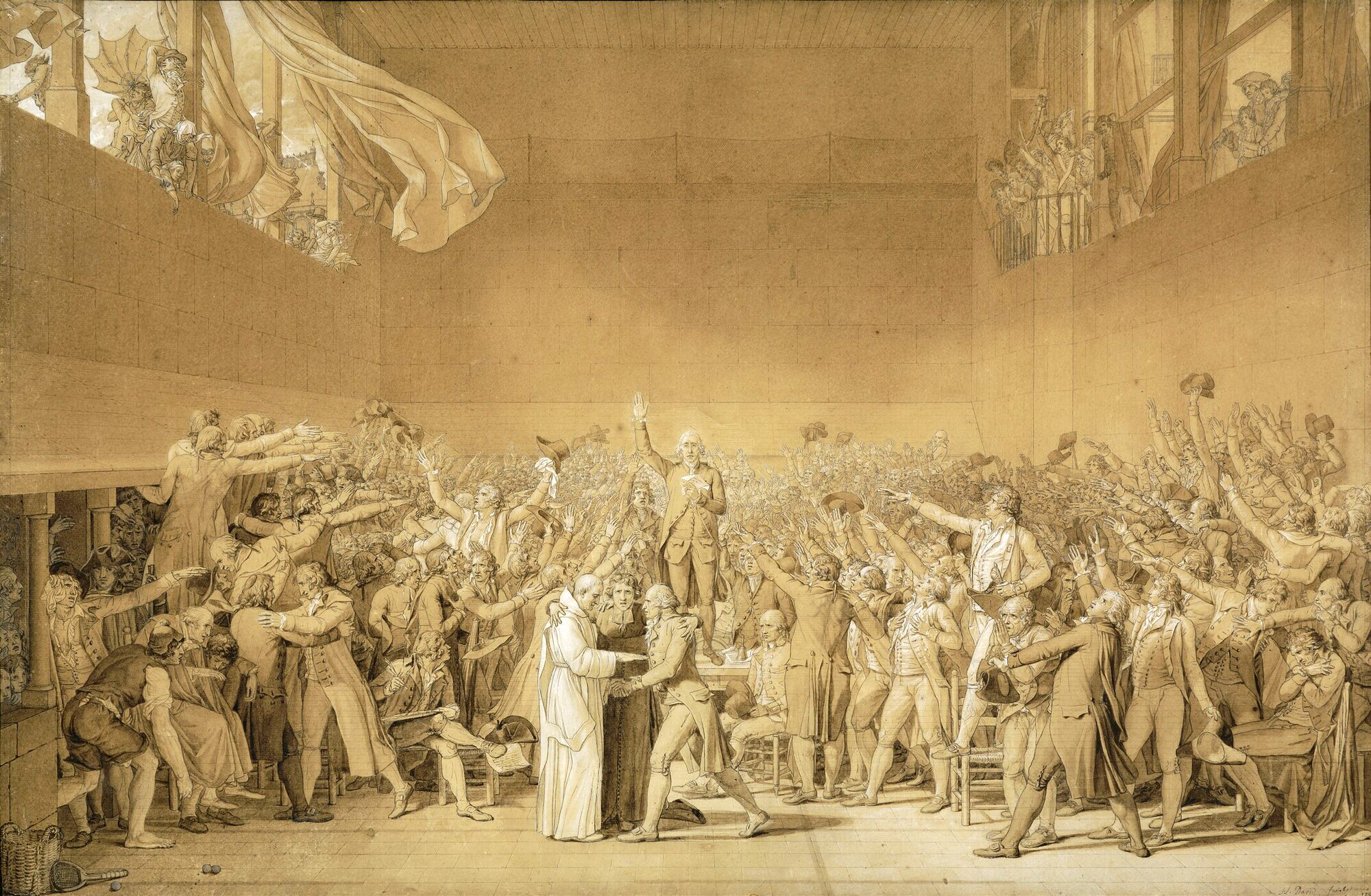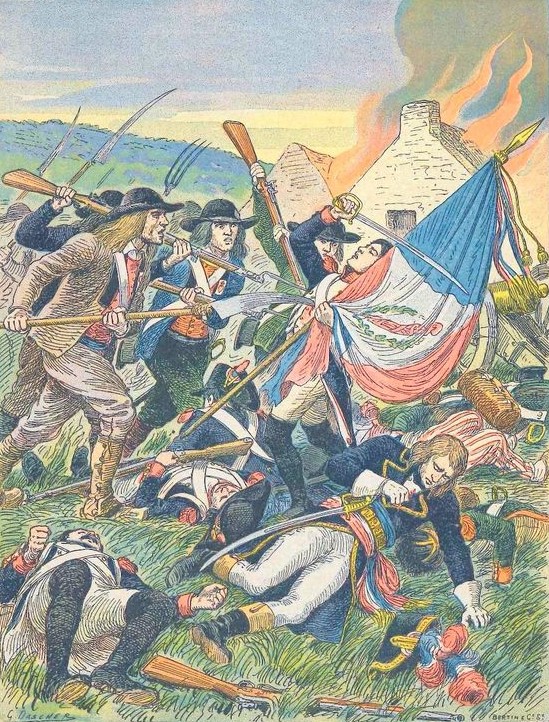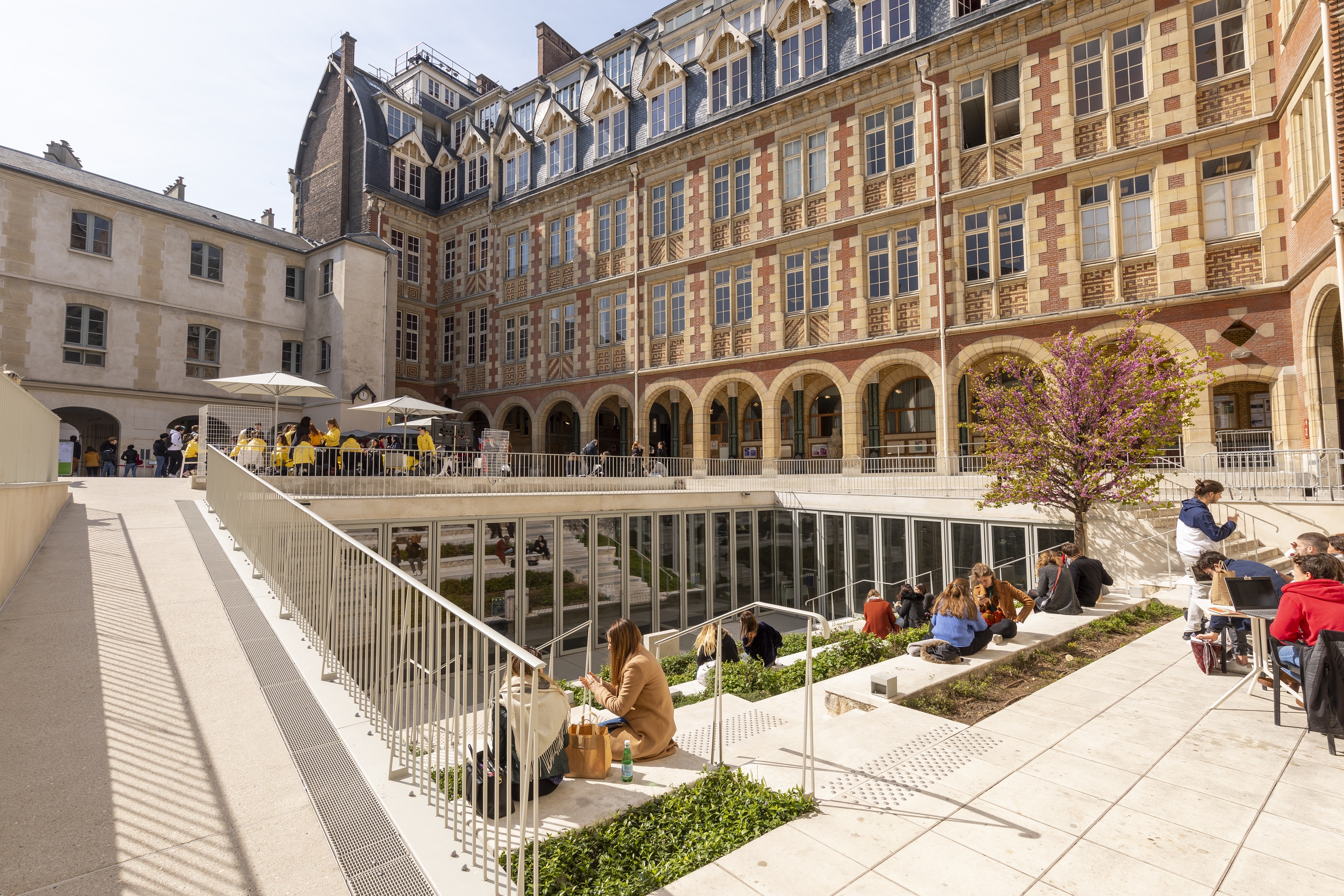|
Red Priests (France)
The term "Red Priests" (French: ''Curés rouges'') or "Philosopher Priests" is a modern historiographical term that refers to Catholic priests who, to varying degrees, supported the French Revolution (1789-1799). The term "Red Priests" was coined in 1901 by Gilbert Brégail and later adopted by Edmond Campagnac. However, it is anachronistic because the color red, associated with socialist movements since 1848, did not signify supporters of the French Revolution, who were referred to as "Blues" during the civil wars of 1793–1799, in contrast to the royalist "Whites". Hence, a recent historian suggested using the term "Philosopher Priests" to describe this group, a term used at the time to refer to these priests. Among the prominent members of this group were Abbé Sieyès, Abbé Grégoire, and Jacques Roux (1752-1794), who committed suicide in prison after being incarcerated on the orders of the Committee of Public Safety led by Robespierre. However, the group included many more ... [...More Info...] [...Related Items...] OR: [Wikipedia] [Google] [Baidu] |
Catholic Church
The Catholic Church (), also known as the Roman Catholic Church, is the List of Christian denominations by number of members, largest Christian church, with 1.27 to 1.41 billion baptized Catholics Catholic Church by country, worldwide as of 2025. It is among the world's oldest and largest international institutions and has played a prominent role in the history and development of Western civilization.Gerald O'Collins, O'Collins, p. v (preface). The church consists of 24 Catholic particular churches and liturgical rites#Churches, ''sui iuris'' (autonomous) churches, including the Latin Church and 23 Eastern Catholic Churches, which comprise almost 3,500 dioceses and Eparchy, eparchies List of Catholic dioceses (structured view), around the world, each overseen by one or more Bishops in the Catholic Church, bishops. The pope, who is the bishop of Rome, is the Papal supremacy, chief pastor of the church. The core beliefs of Catholicism are found in the Nicene Creed. The ... [...More Info...] [...Related Items...] OR: [Wikipedia] [Google] [Baidu] |
Clerical Celibacy
Clerical celibacy is the requirement in certain religions that some or all members of the clergy be unmarried. Clerical celibacy also requires abstention from deliberately indulging in sexual thoughts and behavior outside of marriage, because these impulses are regarded as sinful. Vows of celibacy are generally required for monks and nuns in Christianity, Buddhism, Hinduism, Jainism and other religions, but often not for other clergy. Within the Catholic Church, clerical celibacy is mandated for all clergy in the Latin Church except in the permanent diaconate. Exceptions are sometimes admitted for ordination to transitional diaconate and priesthood on a case-by-case basis for married clergymen of other churches or communities who become Catholics, but ordination of married men to the episcopacy is excluded (see Personal ordinariate). Clerical marriage is not allowed and therefore, if those for whom in some particular church celibacy is optional (such as permanent deacons in ... [...More Info...] [...Related Items...] OR: [Wikipedia] [Google] [Baidu] |
Cahiers De Doléances
The Cahiers de doléances (; or simply Cahiers as they were often known) were the lists of grievances drawn up by each of the three Estates in France, between January and April 1789, the year in which the French Revolution began. Their compilation was ordered by Louis XVI, who had convened the Estates General of 1789 to manage the revolutionary situation, to give each of the Estates – the First Estate (the clergy), the Second Estate (the nobility) and the Third Estate, which consisted of everyone else, including the urban working class, the rural peasantry, and middle class and professional people, who were the only ones in the group likely to have their voices heard – the chance to express their hopes and grievances directly to the King. They were explicitly discussed at a special meeting of the Estates-General held on 5 May 1789. Many of these lists have survived and provide considerable information about the state of the country on the eve of the revolution. The documents re ... [...More Info...] [...Related Items...] OR: [Wikipedia] [Google] [Baidu] |
Estates General Of 1789
The Estates General of 1789 () was a general assembly representing the French estates of the realm: the clergy (First Estate), the nobility (Second Estate), and the commoners (Third Estate). It was the last of the Estates General of the Kingdom of France. Summoned by King Louis XVI, the Estates General of 1789 ended when the Third Estate, along with some members of the other estates, formed the National Assembly and, against the wishes of the king, invited the other two estates to join. This signaled the outbreak of the French Revolution. Background Assembly of Notables The suggestion to summon the Estates General came from the Assembly of Notables installed by the king on 22 February 1787. The Estates General had not been called since 1614. In 1787, the Parlement of Paris refused to ratify Charles Alexandre de Calonne's program of financial reform, due to the competing interests of its noble members. Calonne was the Controller-General of Finances, appointed by the kin ... [...More Info...] [...Related Items...] OR: [Wikipedia] [Google] [Baidu] |
Counter-revolutionary
A counter-revolutionary or an anti-revolutionary is anyone who opposes or resists a revolution, particularly one who acts after a revolution has occurred, in order to try to overturn it or reverse its course, in full or in part. The adjective "counter-revolutionary" pertains to movements that would restore the state of affairs, or the principles, that prevailed during a pre-revolutionary era. Definition A counter-revolution is opposition or resistance to a revolutionary movement. It can refer to attempts to defeat a revolutionary movement before it takes power, as well as attempts to restore the old regime after a successful revolution. Europe France The word "counter-revolutionary" originally referred to thinkers who opposed themselves to the 1789 French Revolution, such as Joseph de Maistre, Louis de Bonald or, later, Charles Maurras, the founder of the '' Action Française'' monarchist movement. More recently, it has been used in France to describe political movements ... [...More Info...] [...Related Items...] OR: [Wikipedia] [Google] [Baidu] |
Jean-Jacques Rousseau
Jean-Jacques Rousseau (, ; ; 28 June 1712 – 2 July 1778) was a Republic of Geneva, Genevan philosopher (''philosophes, philosophe''), writer, and composer. His political philosophy influenced the progress of the Age of Enlightenment throughout Europe, as well as aspects of the French Revolution and the development of modern political, economic, and educational thought. His ''Discourse on Inequality'', which argues that private property is the source of inequality, and ''The Social Contract'', which outlines the basis for a legitimate political order, are cornerstones in modern political and social thought. Rousseau's sentimental novel ''Julie, or the New Heloise'' (1761) was important to the development of preromanticism and romanticism in fiction. His ''Emile, or On Education'' (1762) is an educational treatise on the place of the individual in society. Rousseau's autobiographical writings—the posthumously published ''Confessions (Rousseau), Confessions'' (completed in 17 ... [...More Info...] [...Related Items...] OR: [Wikipedia] [Google] [Baidu] |
Encyclopédie
, better known as ''Encyclopédie'' (), was a general encyclopedia published in France between 1751 and 1772, with later supplements, revised editions, and translations. It had many writers, known as the Encyclopédistes. It was edited by Denis Diderot and, until 1759, co-edited by Jean le Rond d'Alembert. The ''Encyclopédie'' is most famous for representing the thought of the Age of Enlightenment, Enlightenment. According to Denis Diderot in the article "Encyclopédie", the ''Encyclopédie'' aim was "to change the way people think" and for people to be able to inform themselves and to know things. He and the other contributors advocated for the secularization of learning away from the Jesuits. Diderot wanted to incorporate all of the world's knowledge into the ''Encyclopédie'' and hoped that the text could disseminate all this information to the public and future generations. Thus, it is an example of democratization of knowledge. It was also the first encyclopedia to include ... [...More Info...] [...Related Items...] OR: [Wikipedia] [Google] [Baidu] |
Age Of Enlightenment
The Age of Enlightenment (also the Age of Reason and the Enlightenment) was a Europe, European Intellect, intellectual and Philosophy, philosophical movement active from the late 17th to early 19th century. Chiefly valuing knowledge gained through rationalism and empiricism, the Enlightenment was concerned with a wide range of social and Politics, political ideals such as natural law, liberty, and progress, toleration and fraternity (philosophy), fraternity, constitutional government, and the formal separation of church and state. The Enlightenment was preceded by and overlapped the Scientific Revolution, which included the work of Johannes Kepler, Galileo Galilei, Francis Bacon, Pierre Gassendi, Christiaan Huygens and Isaac Newton, among others, as well as the philosophy of Descartes, Hobbes, Spinoza, Leibniz, and John Locke. The dating of the period of the beginning of the Enlightenment can be attributed to the publication of René Descartes' ''Discourse on the Method'' in 1 ... [...More Info...] [...Related Items...] OR: [Wikipedia] [Google] [Baidu] |
Estates Of The Realm
The estates of the realm, or three estates, were the broad orders of social hierarchy used in Christendom (Christian Europe) from the Middle Ages to early modern Europe. Different systems for dividing society members into estates developed and evolved over time. *The best known system is the French '' Ancien Régime'' (Old Regime), a three-estate system which was made up of a First Estate of clergy, a Second Estate of titled nobles, and a Third Estate of all other subjects (both peasants and bourgeoisie). * In some regions, notably Sweden and Russia, burghers (the urban merchant class) and rural commoners were split into separate estates, creating a four-estate system with rural commoners ranking the lowest as the Fourth Estate. * In Norway, the taxpaying classes were considered as one, and with a very small aristocracy; this class/estate was as powerful as the monarchy itself. In Denmark, however, only owners of large tracts of land had any influence. Furthermore, the ... [...More Info...] [...Related Items...] OR: [Wikipedia] [Google] [Baidu] |
James C
James may refer to: People * James (given name) * James (surname) * James (musician), aka Faruq Mahfuz Anam James, (born 1964), Bollywood musician * James, brother of Jesus * King James (other), various kings named James * Prince James (other) * Saint James (other) Places Canada * James Bay, a large body of water * James, Ontario United Kingdom * James College, York, James College, a college of the University of York United States * James, Georgia, an unincorporated community * James, Iowa, an unincorporated community * James City, North Carolina * James City County, Virginia ** James City (Virginia Company) ** James City Shire * James City, Pennsylvania * St. James City, Florida Film and television * James (2005 film), ''James'' (2005 film), a Bollywood film * James (2008 film), ''James'' (2008 film), an Irish short film * James (2022 film), ''James'' (2022 film), an Indian Kannada-language film * "James", a television Adventure Time (season 5)#ep42, ... [...More Info...] [...Related Items...] OR: [Wikipedia] [Google] [Baidu] |
Catholic University Of Paris
The Institut catholique de Paris (, abbr. ICP), known in English as the Catholic University of Paris (and in Latin as ''Universitas catholica Parisiensis''), is a private university located in Paris, France. History: 1875–present The Institut catholique de Paris was founded in 1875, under the name of the Université catholique de Paris by Maurice Le Sage d'Hauteroche d'Hulst. The school settled on the site of the former convent of the Carmelites, however the premises were not well adapted. Gabriel Ruprich-Robert developed a new project for the site; however, due to a lack of sufficient funds, he decided to renovate some of the old buildings instead of destroying them. The first phase of the renovation took place between 1894 and 1897. Following the French law establishing the separation of the church and state, ownership of the premises was given to the state. In 1927, the premises were repurchased by the institute, allowing the second phase of the renovation to take place be ... [...More Info...] [...Related Items...] OR: [Wikipedia] [Google] [Baidu] |





